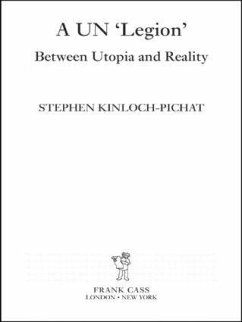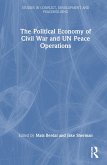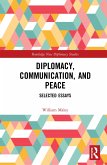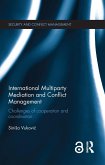Overall, this volume makes two contributions to the way we think about peackeeping: first, it demonstrates that the theory and practice of peacekeeping is embedded in global politics and second it shows that there is an ongoing debate about what peacekeeping is for. Alex J. Bellamy, University of Queensland, Australia Roland Bleiker, University of Queensland, Australia David Chandler, Brunel University, UK Stuart Griffin, King
This book examines the origins, evolution and future of proposals for a UN 'Legion' - a permanent military force recruited, trained and deployed by the UN. The idea has grown, re-emerged and evolved in direct connection with the development of UN
This book examines the origins, evolution and future of proposals for a UN 'Legion' - a permanent military force recruited, trained and deployed by the UN. The idea has grown, re-emerged and evolved in direct connection with the development of UN








